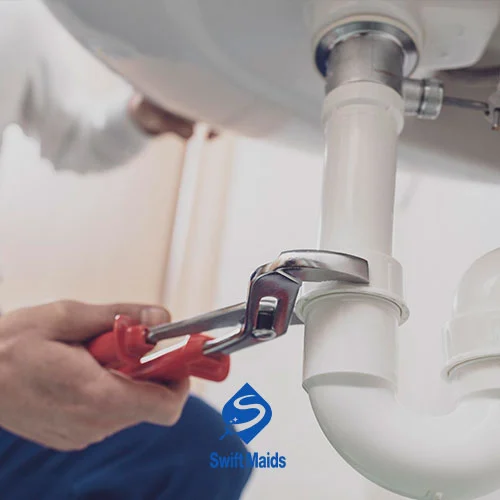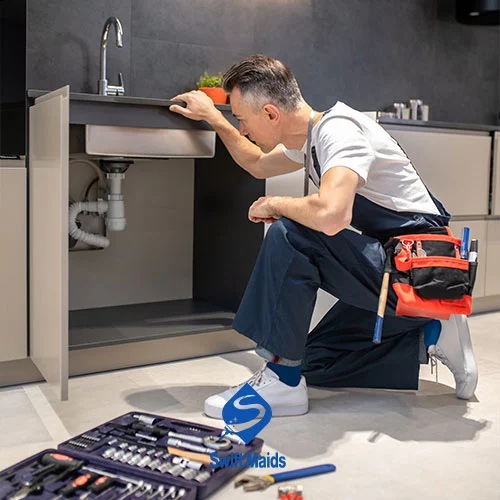You’re walking around Prince’s Island Park on a beautiful day. Perfect day for a shower, right? Except A geyser erupts, soaking everything. Or maybe a sneaky drip hints at a hidden leak. Plumbing problems – a pain! But don’t panic, a few simple steps can keep these disasters at bay.
Plumbing problems can be a real drag, and they can cost a lot of money to fix. But hold on, don’t freak out! By following a few simple steps, you can seriously lower your chances of dealing with these plumbing disasters.
Understanding Your Plumbing System
Before we go into the ways to prevent plumbing problems at home, let’s get a basic idea of how your plumbing system works. Think of it as a hidden network of pipes that keeps your home functioning smoothly, kind of like invisible veins and arteries. Here’s a quick breakdown:
Fresh Water Delivery: This network of pipes brings clean water into your home from the city’s main water line.
Used Water Escape Route: This is where wastewater from sinks, showers, toilets, and washing machines exits your home and connects to the city sewer system.
The Fixtures You Use Every Day: These are the faucets, showerheads, toilets, and drains that you see and use all the time.
Common Plumbing Problems and How to Avoid Them

Now that you have a basic understanding of your plumbing system, let’s tackle some frequent plumbing problems and how to avoid them:
Clogged Drains
The dreaded clog. Hair, soap scum, food scraps, and other stuff can build up in your drains, causing slow drainage or even a complete blockage.
Prevention is Key: Here’s the trick – develop good habits! Don’t pour grease, oil, or food scraps down the drain. Put drain guards in your sinks and showers to catch hair and debris. Clean your drains regularly with a baking soda and vinegar solution or a store-bought drain cleaner (but use it sparingly!).
Leaky Faucets
A constantly dripping faucet is not just annoying; it’s also a waste of money and water!
Catch It Early: Check your faucets for leaks regularly. A leaky faucet can often be fixed by tightening a nut or replacing a worn-out washer. If you’re not comfortable doing it yourself, call a plumber.
Running Toilets
A constantly running toilet wastes a ton of water.
Listen for the sound of running water, even when the toilet isn’t being used. Check the flapper valve and the fill valve for leaks. These parts are usually inexpensive and easy to replace yourself.
Hidden Leaks
Leaks can happen anywhere in your plumbing system, even behind walls or under floors. If it is left unnoticed, they can cause serious damage to your home’s structure.
Keep an eye out for signs of leaks, like unexplained water bills, damp spots on walls or ceilings, or the sound of running water when no taps are open. Regularly inspect areas around pipes, including under sinks and behind appliances.
When the Pressure Gets Too High
High water pressure can put a strain on your plumbing system and lead to leaks.
Know Your Limits: Most homes have a pressure regulator installed. If you’re unsure about your water pressure or suspect it might be too high, consult a plumber.
Schedule regular professional inspections, especially for older plumbing systems. This can help identify potential problems before they become major issues.
Taking Care of Your Plumbing System
Just like your car needs regular care to run smoothly, your plumbing system also benefits with some care. Here are some additional ways to prevent plumbing problems at home:
- Hot Water Heater Care: Flush your hot water heater regularly to remove sediment buildup. This will help it work more efficiently and last longer.
- No Weird Stuff Down the Drain: Accidental flushes of foreign objects (like toys or feminine hygiene products) can lead to major clogs. Talk to everyone in your household about what should and shouldn’t be flushed down the toilet.
- Winter Woes: If you live in an area with freezing temperatures, take steps to prevent your pipes from freezing and bursting. This might include insulating exposed pipes and ensuring proper ventilation in crawl spaces.
Know When to Call the Professionals

While there are many ways to prevent plumbing problems at home with a little effort and maintenance, there will be times when you’ll need a professional. Don’t hesitate to call a licensed plumber for any issues you’re not comfortable tackling yourself, or if the problem seems complex. Early intervention can save you from a major plumbing headache down the road.
Keeping Your Home Flowing Smoothly
Beyond the technical aspects, there are some lifestyle habits you can adopt to keep your plumbing system happy:
Be Mindful of What You Flush: Toilets are not garbage disposals, remember? Avoid flushing anything besides toilet paper and human waste. This will help prevent clogs and keep your system functioning smoothly.
Embrace Preventative Maintenance: Develop a routine for cleaning your drains and garbage disposal regularly. This can be as simple as pouring a baking soda and vinegar solution down the drain followed by hot water, or using a commercial drain cleaner according to the manufacturer’s instructions.
Ditch the Harsh Chemicals: While harsh chemical drain cleaners might seem like a quick fix for clogs, they can actually damage your pipes over time. Opt for natural solutions or call a professional plumber for stubborn clogs.
Garbage Disposal Do’s and Don’ts: Garbage disposals are great for grinding up small food scraps, but they have limits. Avoid putting grease, oil, coffee grounds, or fibrous materials like banana peels or celery down the disposal. These can clog the blades and create unpleasant odors.
The Power of Hot Water: Every few weeks, run hot water through your drains for a few minutes. This can help melt any built-up grease or soap scum that might be lurking in the pipes.
When to Call a Plumber
While these tips will equip you to prevent many common plumbing problems at home, there will be times when professional help is necessary. Here are some situations where calling a plumber is the smart move:
- Major Leaks: If you discover a major leak, don’t attempt to fix it yourself. Turn off the water supply to the affected area and call a licensed plumber immediately. Early intervention can prevent significant water damage to your home.
- Complex Repairs: Some plumbing repairs require specialized tools and expertise. If a job seems too complicated or beyond your skill level, it’s always best to leave it to the professionals.
- Peace of Mind: Sometimes, even if you’re handy, there’s value in the peace of mind that comes with hiring a professional. A qualified plumber can diagnose the problem quickly and efficiently, ensuring a proper and lasting solution. Companies like Swift Maids offer a variety of plumbing services, from routine maintenance to emergency repairs and they also offer home cleaning Calgary services.
Final Thoughts
By following these simple tips and adopting a proactive approach, you can significantly reduce your chances of encountering plumbing problems at home. Remember, ways to prevent plumbing problems at home often involve a combination of awareness, preventative maintenance, and lifestyle habits. With a little effort, you can keep your plumbing system flowing smoothly and avoid costly repairs down the road. So, be proactive, maintain your system, and enjoy the peace of mind that comes with a healthy plumbing system in your home!

